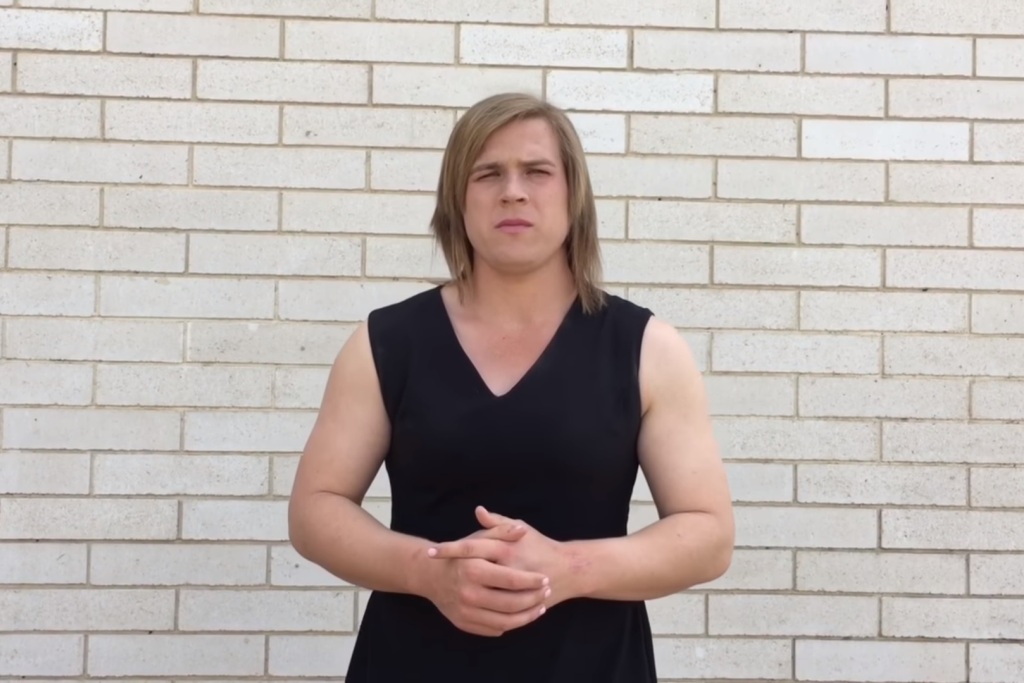Trans Footballer Hannah Mouncey Has Spoken Out About Discrimination And The AFL
"This is about making sure that I as a trans person am not treated differently to anyone else."

Four months after being barred from participating in the 2018 AFL Women’s competition, transgender footballer Hannah Mouncey has been granted permission to play state football.
But while the former Olympic handball star is happy with the decision, she says that the fact that she was not allowed to compete on the national stage was evidence of the discrimination that transgender people face on a regular basis.
The Facts Are The Facts
In a seven minute video response to the league’s most recent ruling, Mouncey said she believed it would be “highly inappropriate” for her to thank the AFL for allowing her “to do something open to every other Australian, which the science and research has supported all along”.
Mouncey pointed to a “lack of knowledge” about the science of gender transitioning, and said that while ignorance was “understandable”, she was distubed by how easily people were willing to dismiss facts that didn’t fit with their personal world view.
“This seems to be the only area of medicine where people with no background in science, medicine or the relevant issues are more than willing to dismiss the advice of experts simply because it does not necessarily match what they were brought up to believe,” she said.
In its decision to prevent Mouncey from competing in the AFLW, the sport’s governing body cited concerns about the “physical disparity” between Mouncey and other players. This was despite the fact that Mouncey’s hormone levels were well within those required to compete as a woman according to international standards. The league was heavily criticised for its decision as well as its lack of clear guidelines for transgender athletes.
But Mouncey said the issue was about more than sport, and criticised those who suggested she was just transitioning so she could play football.
Football “Doesn’t Really Matter”
“People need to realise that in the big scheme of things, football really doesn’t matter,” she said. “For me [transitioning] has meant huge challenges in finding housing and employment, but more significantly the loss of some people very, very important to me, including my best friend,” she said.
“I have many times before spoken about my mental health issues, but what I haven’t spoken about before is how difficult it was to find help,” she continued. “This is pretty common in the trans community… I can’t help but wonder how much suffering on the part of myself and my family and friends could have been avoided if I’d been taken more seriously.”
“No one would ever choose to go through all that, choose to lose so much,” she said. “No one would ever choose not to have a place to live, to have the challenges that trans people do when it comes to finding a job.”
Mouncey went on to call for wider acceptance of trans people, better health care and mental health services, and greater support for the friends and family of people who are transitioning.
Of her own situation, Mouncey said the fight to be able to play was about “making sure that I as a trans person am not treated any differently to anyone else, and neither is any other trans person out there”.
“The AFL may prefer that I did not exist or chose to go and do something else. But that is not how it is. We’re are not people to be ignored in the hope that will happen.”
